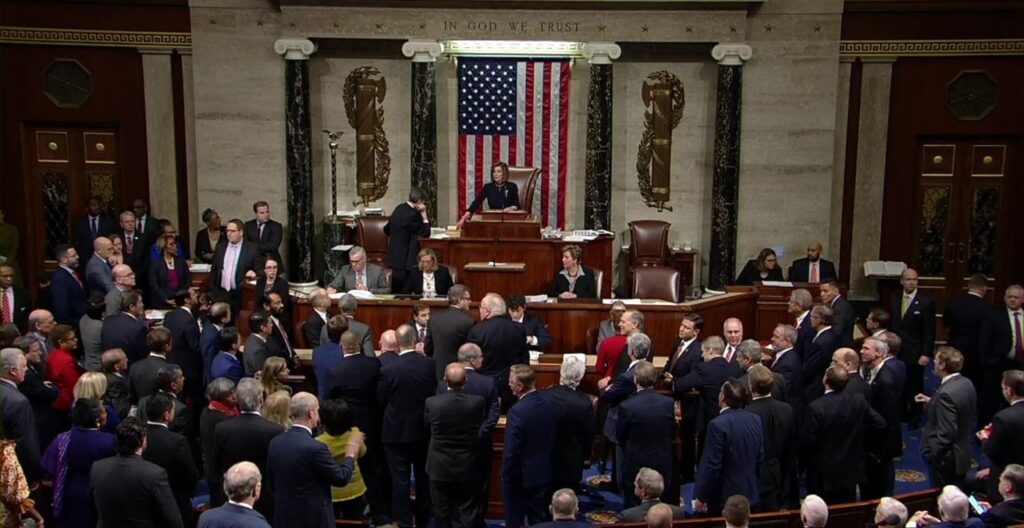House Democrats are not required to oppose two pro-crypto bills up for a vote this week, but they are strongly urged to do so.

Democrats in the United States House of Representatives will not be obligated to vote against two pro-crypto measures that are scheduled for a floor vote this week; however, they are strongly encouraged to do so.
According to an email from party leaders to House members dated May 20 that was obtained by POLITICO, the Democratic Party did not urge members to vote no on the Republican-led Financial Innovation and Technology for the 21st Century (FIT21 Act) and the CBDC Anti-Surveillance State Act (H.R. 4763 and H.R. 5403, respectively).
If enacted, both measures would be considered beneficial for the cryptocurrency industry.
FIT21 would, among other things, strengthen the classification procedure for determining whether a cryptocurrency is a security or commodity and primarily transfer regulatory oversight of the sector to the Commodity Futures Trading Commission.
The bill has received support from the U.S. crypto industry and lobbyists; in a letter dated May 16, sixty companies urged the House to adopt the bill.
Conversely, the CBDC Act will impede the issuance of a Central Bank Digital Currency (CBDC) by the Federal Reserve.
David Scott and Representative Maxine Waters, however, “strongly oppose” FIT21, whereas Waters opposes the CBDC act, according to the correspondence.
A letter from the two individuals subsequently obtained by POLITICO urged a vote against FIT21.
Democratic leaders expressed disapproval in the email regarding certain aspects of the bill. Specifically, they criticized its provision for facilitating the trading of digital commodities on the secondary market, which applies to those that were “originally presented as investment contract securities” according to the Howey test as defined by the Securities and Exchange Commission.
“This language undermines decades of legal precedent and case law, thereby creating uncertainty in our traditional securities market,”
the email said.
In addition, the leaders contended that the bill “weakens investor protections and opens the door to fraud and market manipulation” by providing a “safe harbor” through which certain entities can “effectively shield” themselves from the SEC until the CFTC and SEC ratify crypto rules by filing an intent to register.
The CBDC Anti-Surveillance State Act, meanwhile, would prohibit the Federal Reserve from issuing CBDCs, including for experimental programs.
Democratic leaders contend that impeding CBDCs would undermine the “preeminence of the U.S. dollar,” given that other nations attempting to circumvent sanctions are proceeding with their own CBDC initiatives.
“According to the Congressional Budget Office (CBO), the bill’s overly broad definition of CBDC raises concerns the bill could undermine the Fed’s ability to conduct monetary policy,” the email said. “Particularly concerning as it attempts to navigate a soft landing in regard to inflation.”
The floor will likely debate and approve FIT21 on Wednesday, May 22, according to Mueller of POLITICO.
